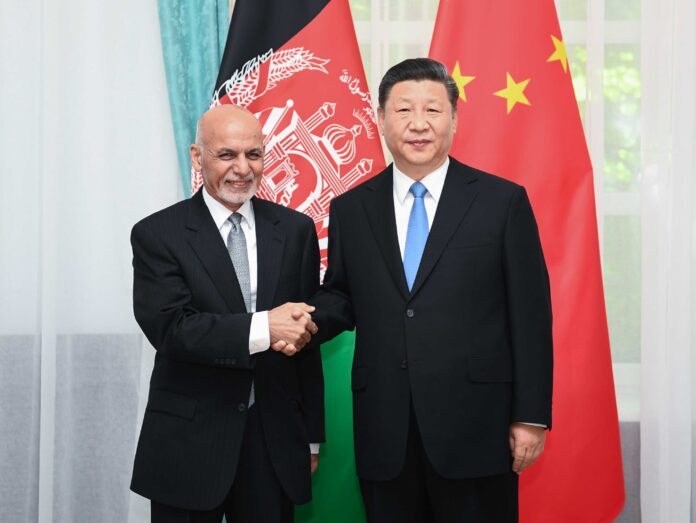

In late June, a severe earthquake struck the southeastern region of Afghanistan. In the immediate aftermath of the disaster, the People’s Republic of China (PRC) announced that it would provide around 50 million RMB ($7.2 million) as emergency aid, including tents, blankets, cots, and other goods that were dearly needed supplies to the impacted areas. Beijing also announced plans to invest in Afghanistan to further its long-term economic, strategic, and political interests in the region. Since the U.S. withdrawal last year, China has had an opportunity to chase its interests and deepen its clout in Afghanistan. When Kabul fell, China did not condemn the move from any forum and announced that it respected the choice of the Afghan people. It was a sign of goodwill from Beijing to the Taliban that it subscribed to the narrative that the new government has the full support of the population. China has never been militarily involved in Afghanistan in the past. Uyghur militants have found safe-haven in the mountainous region of the country for decades, but the level of threat they pose to China is debated even among Chinese analysts. Despite such long-running concerns, Beijing was unperturbed or unshaken by the Taliban’s return to power in Afghanistan last year. The PRC kept its embassy open even after the fall of Kabul, and Beijing has sustained extensive diplomatic contact with the Taliban mainstream leadership to safeguard its economic and strategic interests in Afghanistan. The PRC is seeking to carry out a complex formula called the balancing act in Afghanistan. Concerns regarding Afghanistan becoming a haven for extremist groups that very quickly target any neighboring countries have still kept China unmoved. It is also believed that Beijing also perceives huge opportunities in Afghanistan’s natural resources, and markets and it’s potential to serve as a key node linking China with South and Central Asia. To achieve a stable and secure Belt and Road Initiative (BRI), which will further expand China’s interests throughout Central Asia, Beijing’s interest lies in a stable Afghanistan
Post 9/11 relations
The basis of PRC policy toward Afghanistan is based on five guiding principles of peaceful coexistence: non-intervention, peaceful co-existence, mutual non-aggression, respect for sovereignty, equality, and also work towards a mutual benefit. Moreover, China has economic, security, and strategic equities in Afghanistan, which provides a valid argument for its involvement in the country. China-Afghanistan relations have generally remained on a smooth surface throughout their diplomatic history, except from 1979-1989, when the Soviet Union invaded Afghanistan with all its might, and China refused to recognize the Soviet-installed government. Similarly, Beijing also opted not to recognize the Taliban government in 1996. When the USA decided to invade Afghanistan in 2001, China favored the resolution in the UN for military action. It is because the US toppling the Taliban was in the best interest of Beijing as it gave them a safe neighboring land with little or no militants. So it was in their interest to support the move.
Win-Win for both
Afghanistan is an underdeveloped country with huge amounts of natural resources, in particular, lithium, cobalt, copper, gold, natural gas, coal, and oil. Uranium reserves have also been speculated to be there. The country has 16 trillion cubic feet of gas, 500 billion barrels of liquified natural gas, and 1.6 trillion barrels of crude oil according to a US geological survey in 2020. The total estimated value of Afghanistan’s natural resources is $1 trillion, which is a glittering source of attraction for China after the U.S’s exit. Due to its growing domestic energy demand and tight global supplies since the onset of the Russia-Ukraine war, China is intensely concerned about both energy security and access. Similarly, Afghanistan is a healthy market for the export of Chinese goods, which further encourages Beijing to remain engaged with the country.












